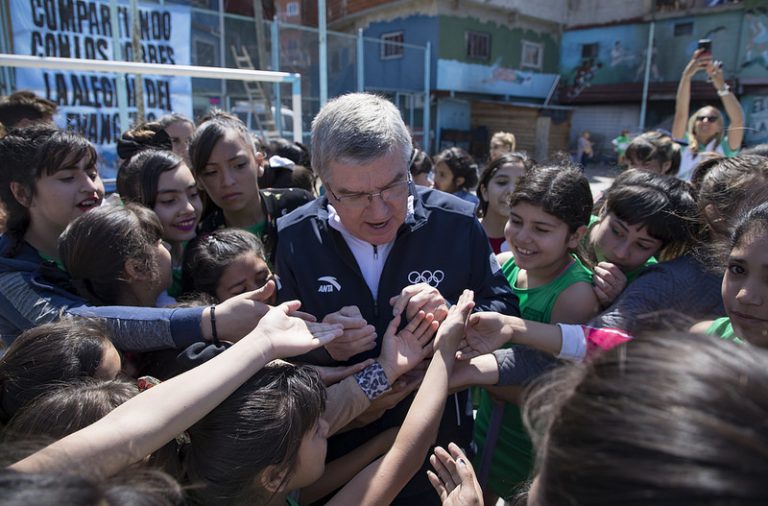One day following a surprise International Olympic Committee (IOC) announcement that foreshadowed possible sweeping changes to the Winter Olympics bid process, president Thomas Bach explained his understanding of the possible roadmap ahead.

Speaking at a press conference following his quarterly Executive Board meeting at Olympic House in Lausanne, Switzerland Wednesday Bach told reporters, cautioning speculation, that he understood a double allocation of the 2030 and 2034 Olympic and Paralympic Games would need to happen no later than 2025.
“I think it would be too late in ‘26 for a double award. Four years, even if you have extremely well prepared cities and regions four years is pretty short,” he said regarding the timeline.
Earlier this year Bach said the 2034 Games would be awarded by his successor after his term ends in 2025, ensuring good governance. But that changed this week when the IOC’s Future Host Commission raised concerns about climate change impacting potential Winter hosts and proposed new measures to secure “climate-capable” sites for future editions.
The Executive Board then reset the current 2030 bid process, cancelling the planned election that was scheduled for next fall and allowing experts time to develop new policies and speak to new potential hosts. Officials said the new election could not occur before 2024.
Most startling was a proposal to select a group of qualified hosts to stage the Games in a permanent rotation.
Bach added that the rotation, if implemented, would follow a double allocation.
“I perceived it in the way that the [Future Host] Commission is saying, by a double allocation we would win some time to establish a sound rotation system. This would follow the allocation for 2030.”
Meanwhile applicants in the current 2030 race – Salt Lake City, Sapporo, and Vancouver – who are all former hosts, will have to adjust plans to the new open-ended timeline with the possible consideration of 2034. They may also need to welcome new competition.
The United States Olympic and Paralympic Committee (USOPC) prefers Salt Lake City to host in 2034 to allow breathing space following the Los Angeles 2028 Summer Games, so this new direction could add clarity to the plans.
British Columbia’s Vancouver-centered indigenous-led bid will get more time and more options to present to provincial officials after the BC government passed on the project in October without discussion.
Japanese officials will use the time to address flawed governance issues that led to widespread corruption during the organization of the Tokyo 2020 Games. The public has since soured on Sapporo’s bid, but the IOC said Wednesday that they are confident Japan’s government is correcting the problem.
IOC Executive Director Christophe Dubi said the bid is not limited to these current applicants. He explained “there are a number of parties that are looking into the distant future that we have been talking to in the last weeks and months and these discussions will certainly continue including with this new time frame.”


